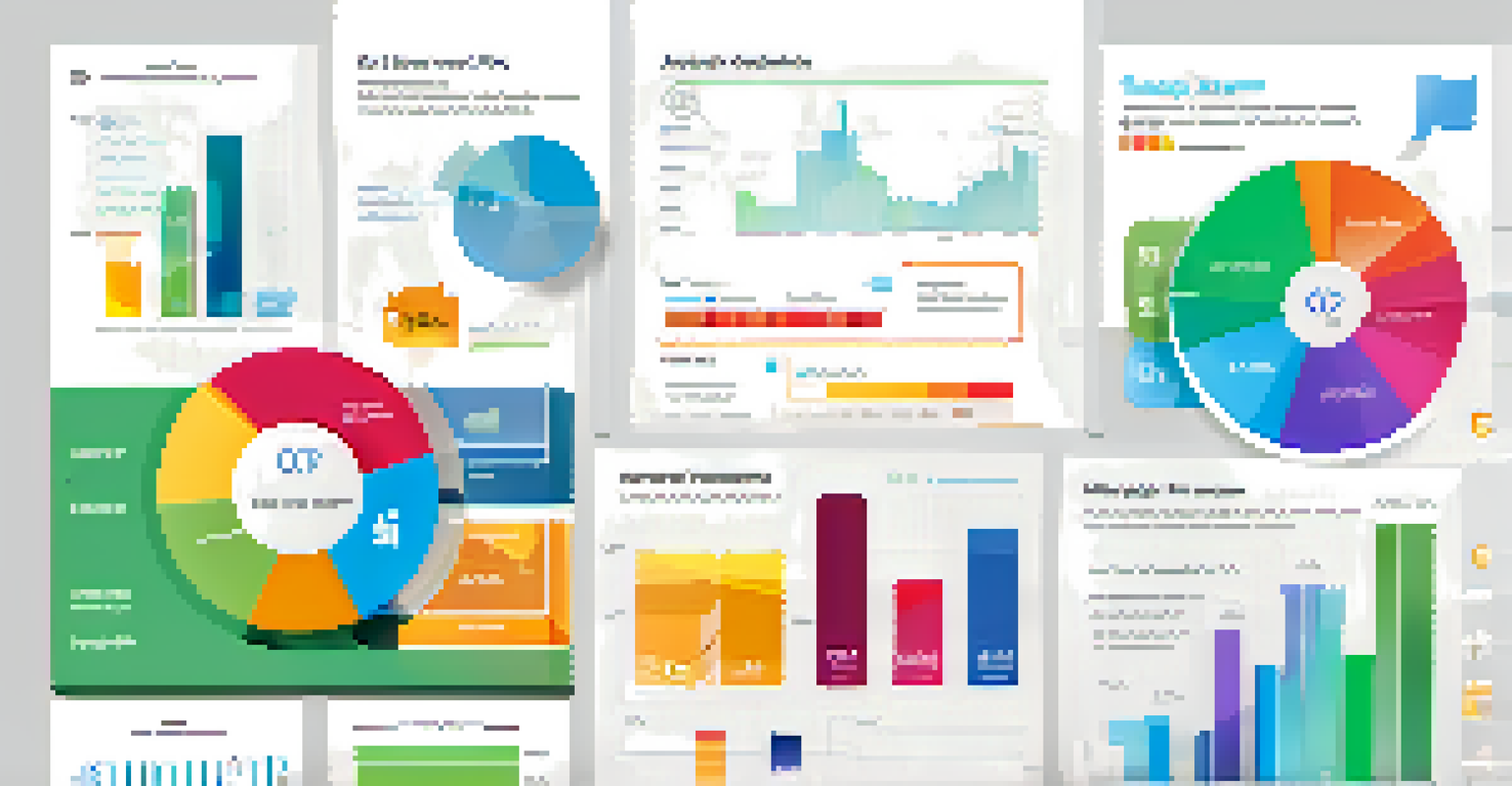Using Budgeting Apps: Modern Tools for Financial Control

Understanding the Importance of Budgeting
Budgeting is the foundation of sound financial management. It helps you track income, expenses, and savings, paving the way for better financial decisions. Without a budget, it’s easy to overspend or lose sight of your financial goals.
A budget is telling your money where to go instead of wondering where it went.
Think of budgeting as a roadmap for your money. Just like a GPS guides you on a road trip, a budget helps steer you toward your financial destination. It allows you to prioritize needs over wants and prepare for unexpected expenses.
By regularly reviewing your budget, you can adjust your spending habits and ensure you’re on track to meet your goals. This proactive approach can relieve stress and give you a clearer picture of your financial health.
What Are Budgeting Apps and How Do They Work?
Budgeting apps are digital tools designed to simplify the process of tracking your finances. They allow you to input your income and expenses, categorize them, and visualize your spending habits through graphs and charts. This makes managing your budget more interactive and engaging.

Most budgeting apps offer features like reminders for upcoming bills, alerts when you're nearing your budget limits, and insights into your spending patterns. This level of automation can save you time and help you avoid manual tracking methods that can be cumbersome.
Budgeting is Essential for Finances
Budgeting serves as a roadmap for your finances, helping you track income, expenses, and savings to make informed decisions.
In essence, these apps act as your financial ally, providing the structure and support you need to maintain control over your money. By having everything in one place, it’s easier to stay organized and focused on your financial goals.
Choosing the Right Budgeting App for You
With a plethora of budgeting apps available, it’s essential to choose one that aligns with your financial habits and goals. Start by considering what features matter most to you, whether it’s expense tracking, bill reminders, or investment monitoring. This clarity will narrow down your options.
Budgeting isn't about limiting yourself—it's about making the things that excite you possible.
Some popular apps like Mint and YNAB (You Need a Budget) cater to different needs, from comprehensive budgeting to envelope-style cash management. By exploring these options, you can find an app that feels intuitive and meets your requirements.
Don't hesitate to take advantage of free trials or basic versions when available. This hands-on approach allows you to test the waters and find the app that fits seamlessly into your financial routine.
Integrating Budgeting Apps into Your Daily Life
To reap the full benefits of budgeting apps, it’s important to integrate them into your daily routine. Start by setting aside a few minutes each day to input expenses and review your budget. This small commitment can lead to significant insights over time.
Consider linking your bank accounts and credit cards to the app for real-time updates. This automation can reduce the manual entry burden and provide a more accurate picture of your financial situation.
Choosing the Right App Matters
Selecting a budgeting app that fits your financial habits and goals can significantly enhance your money management experience.
Additionally, make it a habit to review your budget weekly or monthly. This consistent check-in will help you stay accountable and make adjustments as needed, ensuring that you remain on track with your financial goals.
The Benefits of Collaborative Budgeting
For couples or families, collaborative budgeting apps can be a game-changer. These platforms allow multiple users to access and manage a shared budget, fostering open communication about financial goals and spending habits. This transparency can strengthen financial partnerships.
By working together within the app, you can set joint goals, like saving for a vacation or paying off debt. This shared responsibility can motivate everyone involved to stay committed to the plan.
Ultimately, collaborative budgeting can lead to better financial outcomes and a stronger bond over shared financial ambitions. It’s about teamwork, understanding, and reaching your goals together.
Common Challenges with Budgeting Apps
While budgeting apps provide numerous benefits, they aren’t without challenges. One common issue is the learning curve associated with new technology. Some users may find it overwhelming to navigate the features or set up their accounts initially.
Another challenge is the potential for inaccurate data syncing. Sometimes, transactions may not reflect in real-time, leading to discrepancies in your budget. Regularly checking and reconciling your data can help mitigate this issue.
Collaborative Budgeting Strengthens Bonds
Using collaborative budgeting apps encourages open communication and teamwork in managing finances, leading to better outcomes for families or couples.
Lastly, it’s crucial to remain disciplined. Budgeting apps can only guide you; they won’t change your spending habits overnight. Commitment and consistency are key to achieving lasting financial control.
The Future of Budgeting: Trends to Watch
As technology evolves, so do budgeting apps. We can expect to see more integration with artificial intelligence, allowing for smarter spending suggestions based on your habits. This could mean personalized insights that help you save even more effectively.
Moreover, the rise of gamification in financial management can make budgeting more engaging. Features like rewards for meeting savings goals can motivate users to stick to their budgets while having fun.

Finally, as the importance of financial literacy grows, budgeting apps may incorporate educational resources directly within the platform. This shift aims to empower users with knowledge, helping them make informed financial decisions for a brighter future.